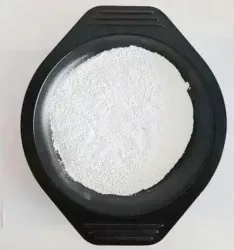Warning: Undefined array key "file" in /home/www/wwwroot/HTML/www.exportstart.com/wp-content/themes/1198/header.php on line 7
Warning: Undefined array key "title" in /home/www/wwwroot/HTML/www.exportstart.com/wp-content/themes/1198/header.php on line 7
Warning: Undefined array key "title" in /home/www/wwwroot/HTML/www.exportstart.com/wp-content/themes/1198/header.php on line 7
- Afrikaans
- Albanian
- Amharic
- Arabic
- Armenian
- Azerbaijani
- Basque
- Belarusian
- Bengali
- Bosnian
- Bulgarian
- Catalan
- Cebuano
- China
- China (Taiwan)
- Corsican
- Croatian
- Czech
- Danish
- Dutch
- English
- Esperanto
- Estonian
- Finnish
- French
- Frisian
- Galician
- Georgian
- German
- Greek
- Gujarati
- Haitian Creole
- hausa
- hawaiian
- Hebrew
- Hindi
- Miao
- Hungarian
- Icelandic
- igbo
- Indonesian
- irish
- Italian
- Japanese
- Javanese
- Kannada
- kazakh
- Khmer
- Rwandese
- Korean
- Kurdish
- Kyrgyz
- Lao
- Latin
- Latvian
- Lithuanian
- Luxembourgish
- Macedonian
- Malgashi
- Malay
- Malayalam
- Maltese
- Maori
- Marathi
- Mongolian
- Myanmar
- Nepali
- Norwegian
- Norwegian
- Occitan
- Pashto
- Persian
- Polish
- Portuguese
- Punjabi
- Romanian
- Russian
- Samoan
- Scottish Gaelic
- Serbian
- Sesotho
- Shona
- Sindhi
- Sinhala
- Slovak
- Slovenian
- Somali
- Spanish
- Sundanese
- Swahili
- Swedish
- Tagalog
- Tajik
- Tamil
- Tatar
- Telugu
- Thai
- Turkish
- Turkmen
- Ukrainian
- Urdu
- Uighur
- Uzbek
- Vietnamese
- Welsh
- Bantu
- Yiddish
- Yoruba
- Zulu
Sht . 15, 2024 06:20 Back to list
Corn Xylitol - Natural Sweetener from Corn for Healthy Living
The Sweet Science of Corn Xylitol A Natural Sugar Substitute
In recent years, the demand for healthier alternatives to sugar has surged, driven by growing awareness of the adverse effects of excessive sugar consumption on health, including obesity, diabetes, and dental cavities. Among the plethora of sugar substitutes available, corn xylitol stands out as a promising option, especially for those looking for natural, low-calorie sweeteners.
Corn xylitol is a sugar alcohol derived from the fibers of corn, specifically the hemicellulose. This versatile compound is naturally found in various fruits and vegetables, but it is typically produced in larger quantities through a process that converts corn starch into xylitol. The sweet taste of xylitol, which is approximately as sweet as sucrose (table sugar), coupled with its lower caloric value—about 2.4 calories per gram compared to sugar’s 4 calories—makes it an appealing alternative for many.
One of the most significant advantages of corn xylitol is its minimal impact on blood sugar levels. Unlike regular sugar, which can cause rapid spikes in blood glucose and insulin levels, xylitol has a low glycemic index (GI) of around 7. This characteristic makes it an attractive option for individuals managing diabetes or seeking to cut down on their carbohydrate intake. The body metabolizes xylitol more slowly, allowing for a gradual release of glucose and providing a steadier energy level.
corn xylitol

Another pivotal benefit of corn xylitol is its dental health properties. Numerous studies have suggested that xylitol can help prevent cavities and promote overall oral health. Unlike sugar, which feeds harmful bacteria in the mouth, xylitol has been shown to inhibit the growth of these bacteria. This means that integrating xylitol into one's diet could be an effective strategy for reducing plaque formation and improving dental hygiene. Dental care products, such as toothpaste and chewing gum, often incorporate xylitol for this very reason.
Moreover, corn xylitol is also popular in the realm of weight management. As a low-calorie sweetener, it can satisfy a sweet tooth without the added calories found in traditional sweets. This aspect has made corn xylitol a common ingredient in various food products, including snacks, baked goods, and beverages, allowing consumers to enjoy sweetness without compromising their dietary goals.
Despite its many advantages, it is essential to note that corn xylitol can cause gastrointestinal discomfort for some individuals, particularly when consumed in large quantities. Symptoms may include bloating, gas, and diarrhea, as sugar alcohols can be challenging for the digestive system to break down. Therefore, moderation is key when incorporating xylitol into one’s diet.
In conclusion, corn xylitol emerges as a noteworthy contender in the realm of sugar substitutes, appealing to health-conscious consumers seeking guilt-free sweetness. Its low caloric value, minimal impact on blood sugar, and potential dental health benefits position it as a viable alternative to traditional sugar. As the quest for healthier living continues, corn xylitol is likely to find a secure place on the shelves of health-minded consumers, proving that sweetness can indeed be achieved without the sugar-laden consequences. For those exploring natural sweetening options, corn xylitol is a journey worth undertaking.
Latest news
-
2025 Brazil Sao Paulo Cosmetics Exhibition
NewsMay.20,2025
-
2025 European Fine Chemicals Exhibition in Germany
NewsMay.13,2025
-
2025 New York Cosmetics Ingredients Exhibition
NewsMay.07,2025
-
Zibo will host the 2025 International Chemical Expo
NewsApr.27,2025
-
2025 Yokohama Cosmetics Raw Materials and Technology Exhibition
NewsApr.22,2025
-
2025 India Mumbai Fine Chemicals Exhibition
NewsApr.18,2025

